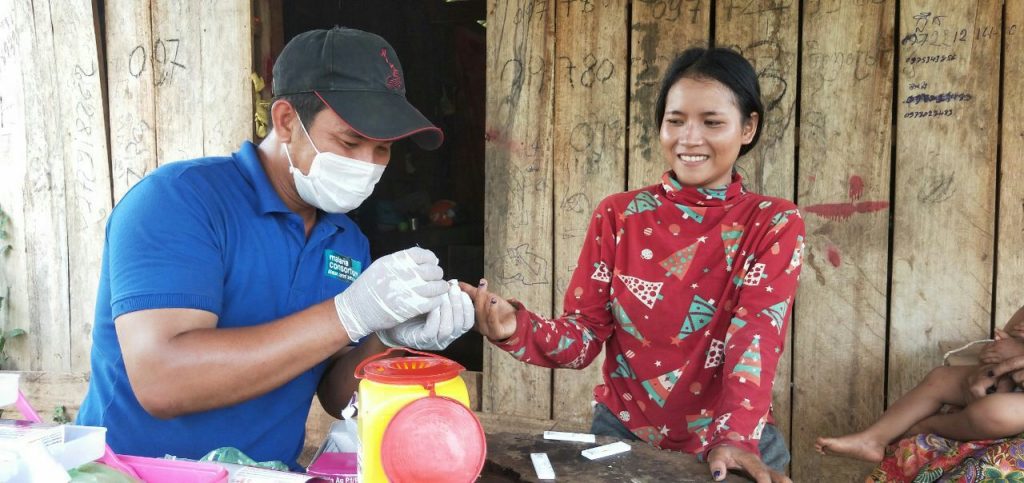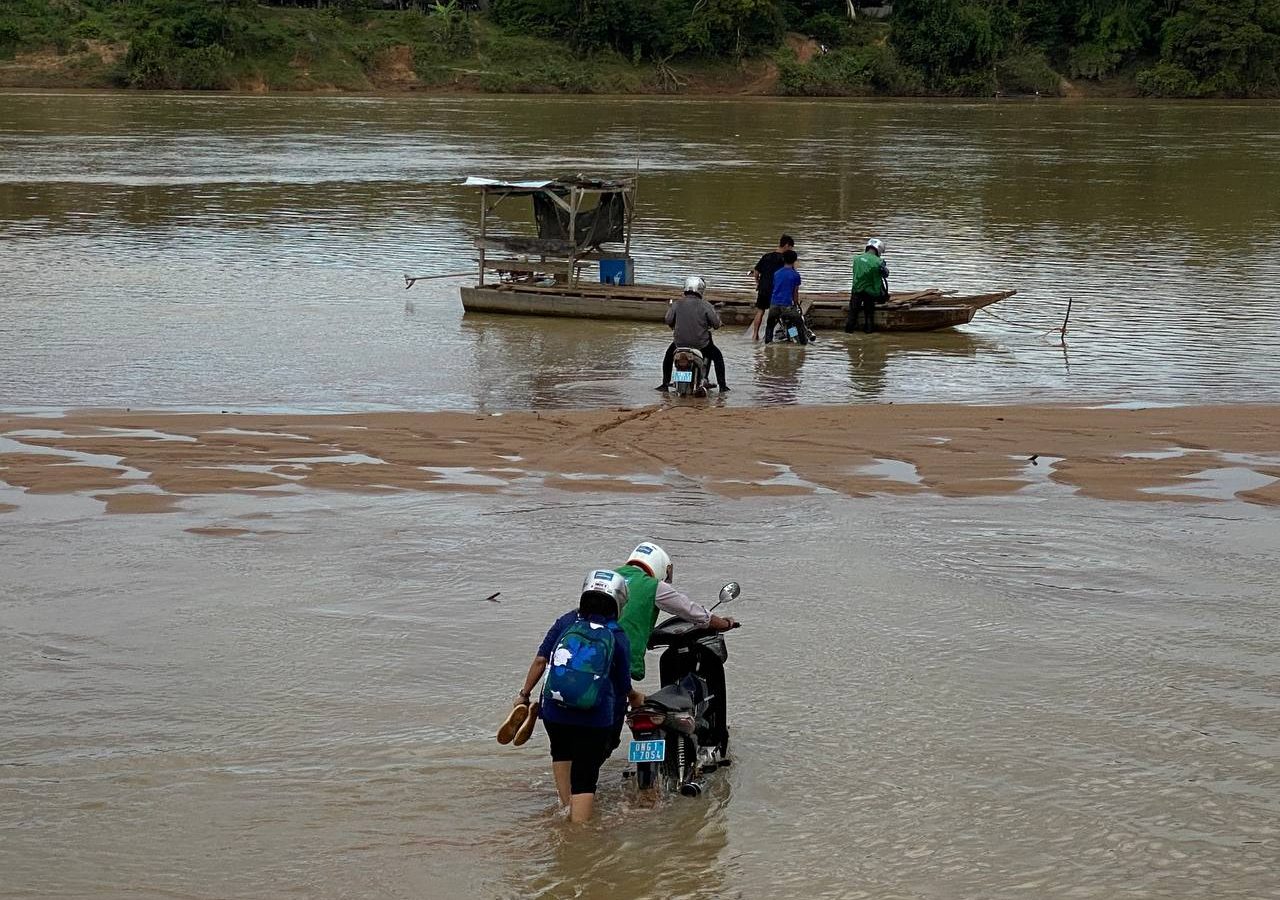Heavy rain has been pouring down, non-stop, since the early morning. It’s one of those days during the monsoon season where we know our mobile malaria workers (MMWs) and the Malaria Consortium teams might wish to be in any number of other places, preferably with solid floors and a protective roof. Instead, they face fast-rising river waters, submerged forest tracks, difficult dirt roads and… mud; deep, sticky and heavy. And yet they are here, committed as always to their tasks and to contributing to eliminating malaria in Cambodia.

Particularly on days like today, one wonders why people want to make their living in such an inhospitable and challenging environment; densely forested, with little to no passable roads in bad weather and far away from any facility or services. The answer is rather straightforward; there is often simply no other choice to get a decent income to provide for a family.
It is in these remote and forested areas in northern Cambodia, along the international border with Laos and Vietnam, that Malaria Consortium offers quality mobile malaria services for hard-to-reach populations. Here, we are able to have a real impact – directly reaching out to those people who are most at risk and most secluded from malaria services and also in contributing to the country’s national goal of achieving malaria elimination by 2025.
My colleague arrives back at our Malaria Consortium office after an overnight stay at an area with small family plantations – an estimated 26km further away through the deep Vireak Chey forest – at the other side of the river. He had joined a MMW during outreach activities on a Malaria Consortium project, RAI3E, providing health education, malaria testing and mosquito nets to the local forest goers, their families and the mobile population in the area. The locally recruited MMW belongs to a prominent ethnic group and speaks the language. His presence, and that of the other 84 MMW`s across six provinces, is key for the success of the project.
I hardly recognise my colleague as he walks inside. While taking off his muddy helmet, he smiles at me and mumbles: “That was fun…” He is so proud of the work that MMWs, supported by Malaria Consortium, are doing along the border.

“We went to a new settlement, really difficult to reach. It took us so long to get there. On the way, we met a young lady carrying her sick baby and walking all the way to the nearest village. Both mother and baby tested negative for malaria. I wish we could do more.”
Around 17 people were tested at this new location. Fortunately, none of them tested positive for malaria. The mosquito nets that were distributed were very welcome and after the rains, more MMWs will come for the harvest season. The number of malaria cases usually increases during this period.
Amazing efforts have been undertaken collectively over the last few years in Cambodia by the National Malaria Elimination Program, MMWs, Malaria Consortium teams and other partners, to achieve the objective of malaria elimination. There are only a few years to go and the signs are good – malaria cases have dropped dramatically as testing numbers continue to increase.
The Cambodian Malaria Consortium team remains present in these difficult-to-reach places and continues its daily efforts in delivering quality services to those most exposed to the risk of contracting malaria. My colleague is ready for another muddy trip tomorrow, which I will join. Sure, it will be fun.
Lieven Vernaeve is Programme Manager in Malaria Consortium’s Cambodia office.
